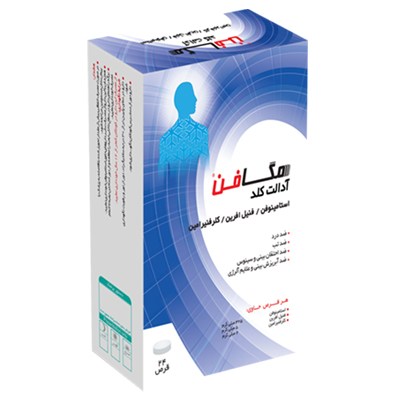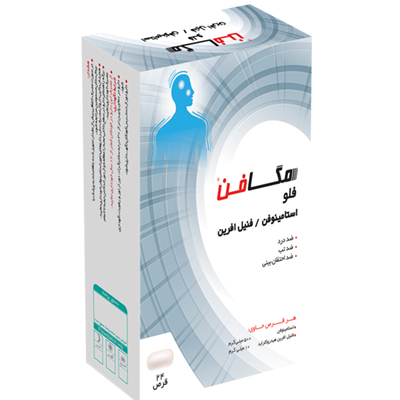Imagine suddenly your skin starting to peel, red, inflamed patches appearing, and people’s eyes going from your eyes to your hands and elbows. The skin condition psoriasis is not only physically painful, but it also affects the psyche. Although it’s unknown to many, millions of people around the world struggle with it. It’s neither contagious nor fatal, but it can have a profound impact on your quality of life. What is psoriasis? A complex immune system disorder that turns the skin into a battlefield.
At first glance, this disorder may seem like just a skin condition; but in fact, psoriasis is a chronic autoimmune disorder. The body mistakenly attacks its own healthy cells. As a result, the production of skin cells increases and the skin's natural cycle is disrupted. The result? Cell buildup, inflammation, itching, and scaling. But what is psoriasis and how is it treated? The answer lies in the deeper layers.
According to studies, this disease affects not only the skin but also the joints, psyche and even the cardiovascular system. Psoriasis of the skin can lead to a type of psoriatic arthritis that destroys the joints. Many patients struggle with depression, anxiety and social isolation. The important question is: what is psoriasis and how can it be overcome?
Today, biologic drugs, phototherapy, topical creams, and lifestyle modifications are the front lines in the fight against this disease. But most importantly, a clear understanding of what psoriasis is and what factors exacerbate or control it is essential.
Psoriasis can be triggered by genetic factors, severe stress, infections, certain medications, or even weather conditions. Understanding what psoriasis is and how to live with it is key to managing the condition.
Here, we will take a comprehensive look at the symptoms, causes, types, diagnosis, and treatment of psoriasis, focusing on the key question of what psoriasis is and how it is treated. We will also understand how the autoimmune disease psoriasis tricks the immune system and damages the body to the point of damage.
Types of psoriasis
What are the types of psoriasis? This chronic autoimmune disease can occur in many forms. The type of lesion, the location of the involvement, and the severity of the inflammation create differences between the different types. Knowing the exact type of psoriasis helps in choosing the right treatment method. The most important types of psoriasis are:
- Plaque psoriasis: The most common type of psoriasis. Raised red patches with silvery scales often appear on the elbows, knees, scalp, and back.
- Inverse psoriasis: This skin condition appears in body folds, such as the armpits, groin, or under the breasts. The lesions are often smooth, shiny, and non-scaly.
- Guttate psoriasis: This type of psoriasis usually appears as small, drop-shaped, scattered patches on the skin and usually develops after throat infections in children or adolescents.
- Pustular psoriasis: This is rarer and is characterized by small pus-filled blisters on a red background. In some cases, it spreads systemically throughout the body.
- Erythrodermic Psoriasis: The most severe and rarest type of psoriasis that causes severe redness and scaling throughout the body and may require immediate hospitalization.
- Psoriatic arthritis: A type of joint inflammation seen in patients with the skin condition psoriasis. It can cause pain, stiffness, and disability in the joints.
For a more detailed study of the types of this disease and the methods of treating each, see the article "Types of psoriasis» See.
What causes the skin disease psoriasis?
The exact cause of psoriasis is not yet fully understood, but medical science believes that a combination of genetic, immune, and environmental factors are involved in the development of this disease. In general, the main causes of this condition can be considered as the following:
- Genetics: People with a family history of psoriasis are more susceptible to developing the condition. The chance of transmission from parents to children is between 10 and 50 percent.
- Immune system disorder: In this disease, the body's immune system mistakenly targets healthy skin cells, and this reaction increases the rate of skin cell proliferation.
- Environmental triggers: Factors such as stress, viral infections (such as streptococcal), skin injuries (scratches or burns), weather changes, and even some medications (such as lithium and beta-blockers) can trigger psoriasis.
- Lifestyle: Smoking, alcohol consumption, obesity, and an unhealthy diet can increase the risk of developing or the severity of symptoms.
- Hormonal changes: Hormonal fluctuations during puberty, pregnancy, or menopause may trigger or worsen symptoms.
For a more detailed review of the related immune and genetic mechanisms, see the article "What causes psoriasis?» Please refer.
What are the symptoms of psoriasis?
What is psoriasis and how can you recognize its symptoms? Recognizing the symptoms is the first step in controlling the disease. These symptoms may vary depending on the type of psoriasis and the severity of the disease, but some common patterns are observed among patients. Below are some of the most common symptoms of psoriasis:
- Red, raised patches: Usually accompanied by silvery scales. These lesions appear on areas such as the elbows, knees, scalp, back, and sometimes around the ears.
- Itching and burning: Many patients complain of severe itching, burning, and even painful sensations in the affected areas.
- Excessive dryness and cracking of the skin: In some cases, deep cracks develop in the skin that may bleed.
- Deformed nails: Discoloration, thickening, pitting, or separation of the nail from the bed can be signs of nail involvement with psoriasis.
- Joint pain (if you have psoriatic arthritis): Joints become painful, swollen, and sometimes stiff. This condition is usually accompanied by skin symptoms.
For complete information about all the symptoms and the differences between the different types, see the article "What are the symptoms of psoriasis?Read ".
4 ways to treat psoriasis with medication
One of the most effective ways to control the symptoms of psoriasis is to use drug treatments under the supervision of a dermatologist. The choice of drug depends on the type, severity, and extent of the disease. We will briefly review the types of drug treatments below:
- Topical ointments (corticosteroids): such as clobetasol or mometasone (Megacort ointment) which reduce inflammation and prevent the growth of excess cells.
- Oral or injectable systemic medications: such as methotrexate, acitretin, or cyclosporine, which are used for more severe cases and regulate the function of the immune system.
- Biologics: These drugs, such as etanercept or adalimumab, have a more precise mechanism of action and directly inhibit specific immune pathways. They are expensive but very effective.
- PDE4 inhibitors: Suitable for patients with mild to moderate symptoms who require long-term use.
To learn about the use, side effects, and effectiveness of each drug, read the article "Drug treatments for psoriasisRead ".
5 types of home remedies for psoriasis
You should know that home treatment for psoriasis plays a very effective complementary role alongside drug treatment. With simple lifestyle changes and the use of some natural products, symptoms can be controlled to a large extent. Effective home methods:
- Oatmeal or Epsom salt baths: Helps soften skin and reduce itching.
- Use strong moisturizers: Coconut oil, Vaseline, or creams containing aloe vera nourish the skin.
- Natural light therapy: Daily exposure to sunlight for 10 to 15 minutes (with caution) can be beneficial.
- Reduce stress with meditation and yoga: Stress is a common symptom that can worsen symptoms. Mental relaxation techniques are very helpful.
- Avoid alcohol, smoking, and inflammatory foods: An anti-inflammatory diet has a significant effect.
For a complete list of scientific and experimental home remedies, see the article "Home treatment for psoriasisRead ".
Diet for psoriasis
So far we have answered what psoriasis is, but how can it be controlled with nutrition? The role of nutrition in regulating the body's immune responses is undeniable. Some foods may cause inflammation, while others have anti-inflammatory properties. Given the great importance of nutrition in this condition, we have also outlined nutritional recommendations for psoriasis:
- More consumption:
- Fatty fish (salmon, tuna),
- Olive oil,
- Dark green vegetables,
- Antioxidant-rich fruits (blueberries, red grapes).
- Avoid using:
- Sweets and simple sugars,
- Processed meats,
- High-fat dairy products,
- Gluten (in some sensitive people).
Also, drinking plenty of water and anti-inflammatory herbal teas such as turmeric or ginger, and taking supplements such as vitamin D, omega-3, and zinc can have a significant effect on the treatment of psoriasis. For information on a complete diet plan for psoriasis patients, see the article "Diet for psoriasisDon't miss it.
Which areas of the body are affected by psoriasis?
Psoriasis is an autoimmune skin disorder that can affect any part of the body, but some areas are more commonly affected. The areas affected vary depending on the type of psoriasis and its severity. Sometimes only the scalp or elbows are affected, while other times it covers the entire body. Identifying common areas of involvement can help with early diagnosis and appropriate treatment. Here is a list of common areas affected by psoriasis:
- Knees
- Elbows
- Palms and feet
- Lower back area
- Face and around the ears
- Inside the mouth (but rarely)
- Joints (in cases of psoriatic arthritis)
- Scalp (Psoriasis on the scalp)
- Genital area (women and men) and groin
- Nails (discoloration, pitting, thickening)
- Body folds (armpits, under breasts, groin)
Does psoriasis also occur in children?
Yes, psoriasis can occur in children, although it is less common than in adults. The disease can begin as early as infancy, and its symptoms may differ from those of psoriasis in adults. Characteristics of psoriasis in children:
- Different appearance: Skin lesions in children are usually softer and pinker in color. There may be less scaling than in adults.
- Location of involvement: It appears most often in creased areas of the body such as the armpits, groin, behind the ears, face, and scalp.
- The more common type: Guttate (drip) psoriasis is more common in children, occurring after a streptococcal infection (such as a sore throat).
- Itching and discomfort: Itching can be severe and make the child restless.
Triggers in children:
- Mental and emotional stress
- Bacterial infections
- Skin injury (such as a scratch or bite)
- Taking certain medications
- Family history of autoimmune or skin diseases
Psoriasis in children It should be done carefully and under the supervision of a dermatologist. Mild topical creams such as moisturizers, mild corticosteroids, and mild phototherapy are often used.
Is there a link between cancer and psoriasis?
Numerous scientific studies over the past two decades have uncovered hidden connections between the skin disease psoriasis and certain cancers, such as lymphoma, skin cancer, and even lung cancer. Research shows that the overactive immune system in psoriasis can sometimes lead to cell mutations, a pathway that can lead to cancer.
Some scientific research suggests that psoriasis may be associated with an increased risk of developing certain types of cancer. This association is usually related to reasons such as chronic inflammation, long-term use of immunosuppressant drugs, and changes in immune system function. In another article, we will discuss this in detail. The connection between cancer and psoriasis We have explained.
Patients with the skin condition psoriasis, especially if they have severe disease, may be at higher risk for cancers such as lymphoma, skin cancer, and lung cancer. Here are some factors that may increase this risk:
- Use of immunosuppressant medications (such as cyclosporine and methotrexate)
- Long history of disease and high severity of psoriasis symptoms
- Chronic inflammation and an overactive immune system
- Unhealthy lifestyle and severe obesity
- Tobacco or alcohol use associated with the disease
- Excessive radiation therapy or phototherapy
- Genetics and family background
Conclusion | Everything we read about the skin disease psoriasis!
Psoriasis is an autoimmune skin disorder that causes an overproduction of skin cells, resulting in red, scaly patches. The disease can affect a person's life because, in addition to skin symptoms, it can also lead to psychological and social problems.
There are different types of psoriasis, each requiring its own specific treatments. Drug treatments, light therapy, and biologics can help reduce symptoms. Along with these treatments, lifestyle changes can also have a big impact. A healthy diet, reducing stress, and using natural products like coconut oil and moisturizers can help control the condition.
For people with psoriasis, it is important to understand the causes and treatment options. With the help of a doctor and following treatment recommendations, you can control your symptoms and live a better life. This information is for general information and guidance only and is not a substitute for medical advice.




